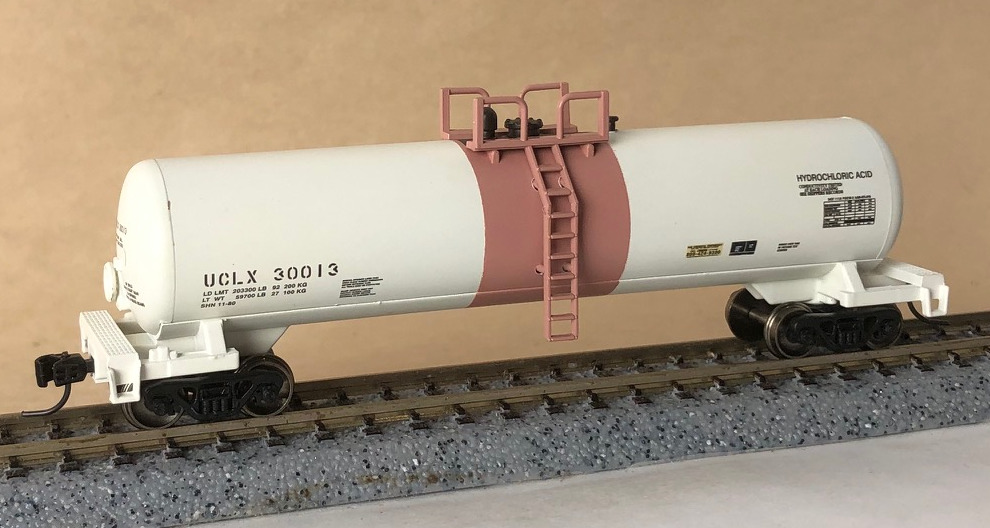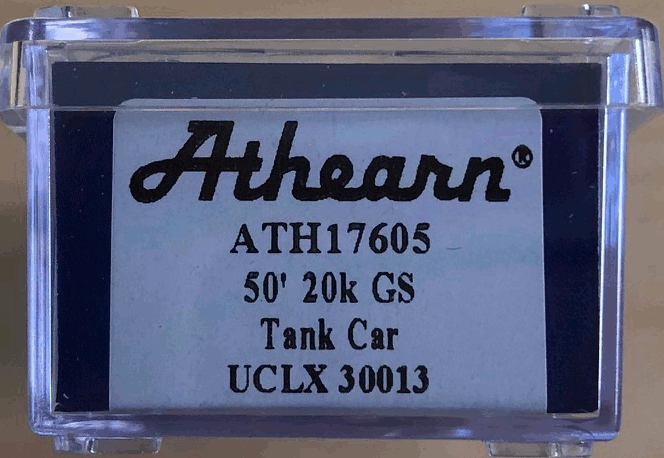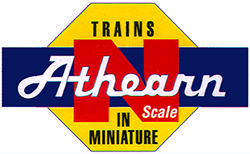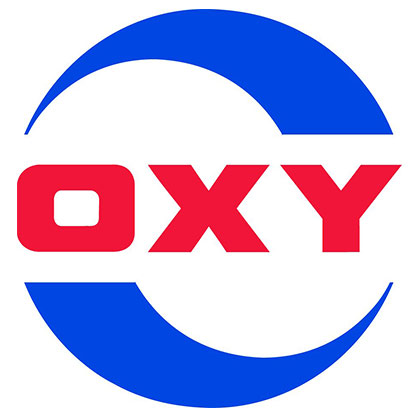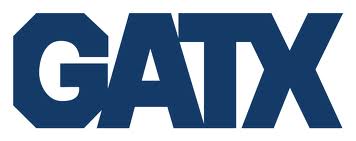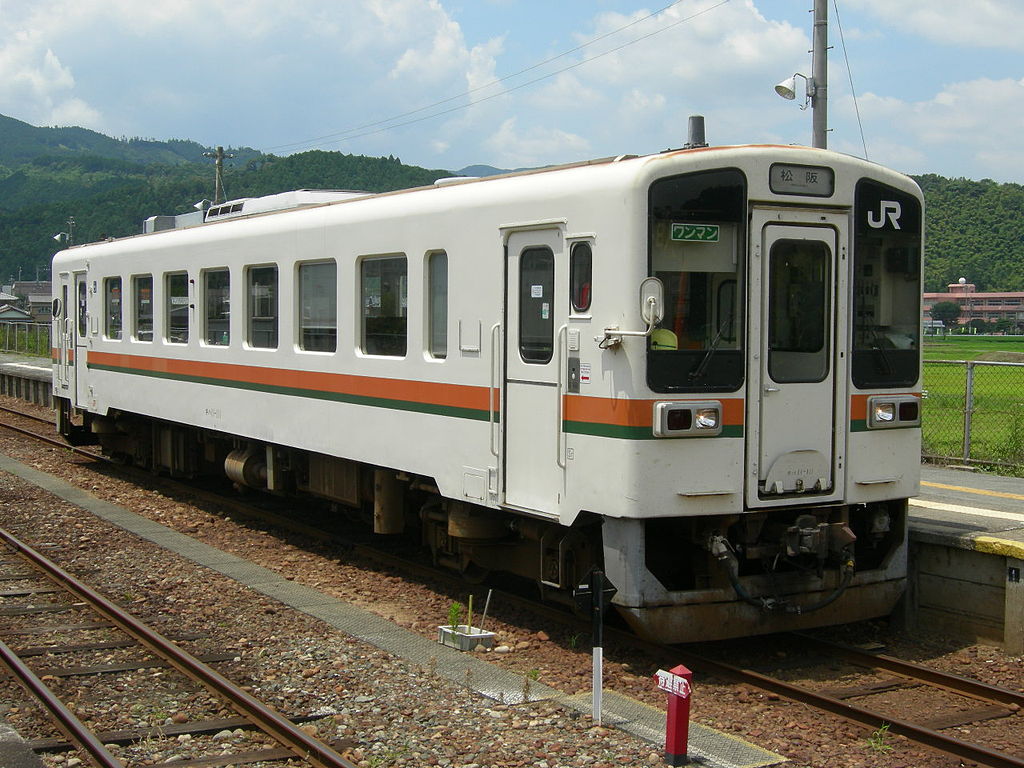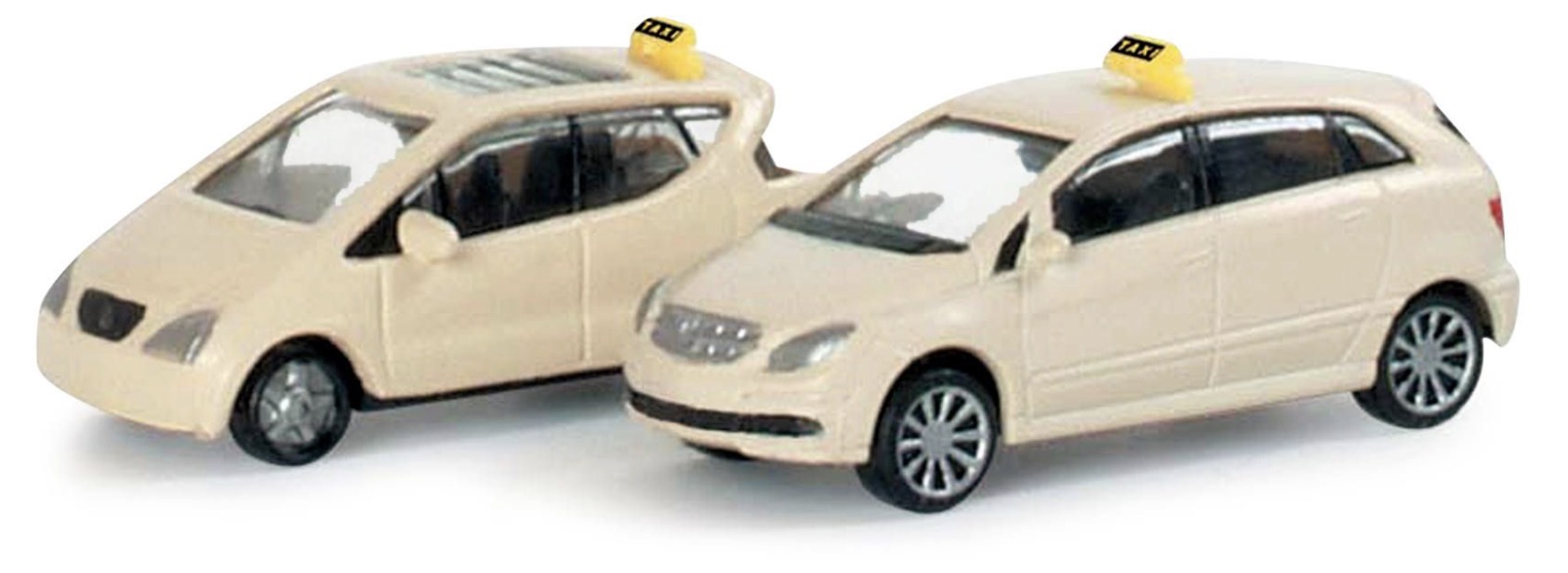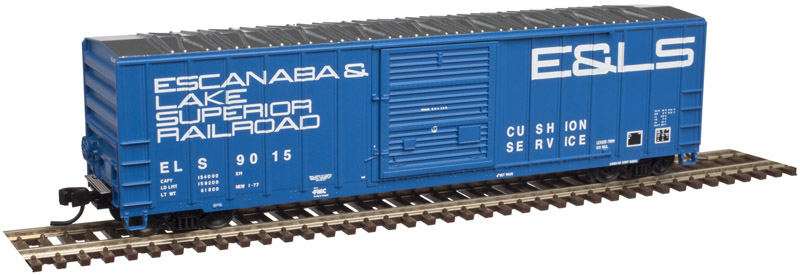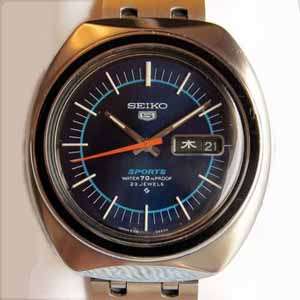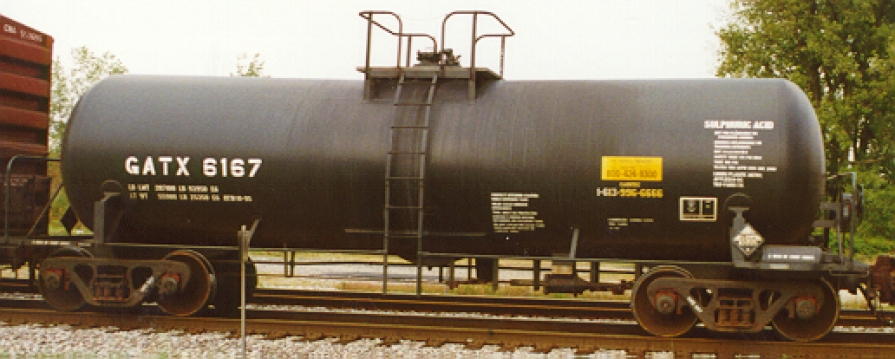Model Information: This is a fairly nice quality tank car from MDC Roundhouse. It likely first appeared in the late 1980s. It appears to model a general service tank car and the road names and paint schemes seem to suggest this is what MDC had in mind. The Roundhouse models were available in both kit and RTR packaging. It doesn't have a ton of detail. Most versions were released with Rapido Couplers so it therefore qualifies as a late 1st generation model. Nevertheless, once the couplers are swapped out, it will look just fine on even the most modern of layouts due to the high print quality and molding on this model. Like all other N Scale toolings made by MDC Roundhouse, this one was acquired by Athearn in 2006. Eastern Seaboard Models has also sold these in custom paint schemes.
Prototype History: These cars are used to carry various types of acids and other specialty products. Customer logos can occasionally be found on GATX leased cars. These cars can be found interchanged all over North America on all major and short line railroads.
GATX offers cars featuring acid-resistant, high-bake epoxy coatings or rubber linings, as well as special fittings and unloading systems capable of handling a variety of products including sulfuric acid, oleum, ferric chloride, hydrochloric acid, phosphoric acid and hydrofluorosilicic acid. These railcars use product-specific linings and coatings specifically designed to protect tank shell integrity and product purity. Some railcars are fitted with loading and unloading devices on a single nozzle, protecting workers and the environment. Exterior paint is designed to withstand contact to corrosive commodities.
GATX offers cars featuring acid-resistant, high-bake epoxy coatings or rubber linings, as well as special fittings and unloading systems capable of handling a variety of products including sulfuric acid, oleum, ferric chloride, hydrochloric acid, phosphoric acid and hydrofluorosilicic acid. These railcars use product-specific linings and coatings specifically designed to protect tank shell integrity and product purity. Some railcars are fitted with loading and unloading devices on a single nozzle, protecting workers and the environment. Exterior paint is designed to withstand contact to corrosive commodities.
Road Name History: Occidental Petroleum Corporation (often abbreviated Oxy in reference to its ticker symbol) is an American company engaged in hydrocarbon exploration in the United States, the Middle East, and Colombia as well as petrochemical manufacturing in the United States, Canada, and Chile. It is organized in Delaware and headquartered in Houston. The company is ranked 722nd on the Forbes Global 2000 and 220th on the Fortune 500.
In 2018, the company was the 9th largest petroleum producer in Texas.
In 2018, the company was the 9th largest petroleum producer in Texas.
Brand/Importer Information: Athearn's history began in 1938, when its founder-to-be, Irvin Athearn, started an elaborate O scale layout in his mother's house. After placing an ad selling the layout, and receiving much response to it, Irv decided that selling model railroads would be a good living. He sold train products out of his mother's house through most of the 1940s. After becoming a full-time retailer in 1946, Irv opened a separate facility in Hawthorne, California in 1948, and that same year he branched into HO scale models for the first time.
Athearn acquired the Globe Models product line and improved upon it, introducing a comprehensive array of locomotive, passenger and freight car models. Improvements included all-wheel drive and electrical contact. One innovation was the "Hi-Fi" drive mechanism, employing small rubber bands to transfer motion from the motor spindle to the axles. Another was the double-ended ring magnet motor, which permitted easy connection to all-wheel-drive assemblies. Athearn was also able to incorporate flywheels into double-ended drives.
The company produced a model of the Boston & Maine P4 class Pacific steam locomotive which incorporated a cast zinc alloy base and thermoplastic resin superstructure. It had a worm drive and all power pickup was through the bipolar trucks that carried the tender. This item was discontinued after the Wilson motor was no longer available, and was not redesigned for a more technologically advanced motor.
Athearn's car fleet included shorter-than-scale interpretations of passenger cars of Southern Pacific and Atchison, Topeka & Santa Fe Railroad prototypes. The company also offered a variety of scale-length freight cars with sprung and equalized trucks. The cars could be obtained in simple kit form, or ready-to-run in windowed display boxes. The comprehensive scope of the product line contributed to the popularity of HO as a model railroad scale, due to the ready availability of items and their low cost.
Irv Athearn died in 1991. New owners took control in 1994, but continued to follow Athearn's commitment to high-quality products at reasonable prices. Athearn was bought in 2004 by Horizon Hobby. Athearn was then moved from its facility in Compton to a new facility in Carson, California. In mid-2009, all remaining US production was moved to China and warehousing moved to parent Horizon Hobby. Sales and product development was relocated to a smaller facility in Long Beach, California.
Read more on Wikipedia and Athearn website.
Athearn acquired the Globe Models product line and improved upon it, introducing a comprehensive array of locomotive, passenger and freight car models. Improvements included all-wheel drive and electrical contact. One innovation was the "Hi-Fi" drive mechanism, employing small rubber bands to transfer motion from the motor spindle to the axles. Another was the double-ended ring magnet motor, which permitted easy connection to all-wheel-drive assemblies. Athearn was also able to incorporate flywheels into double-ended drives.
The company produced a model of the Boston & Maine P4 class Pacific steam locomotive which incorporated a cast zinc alloy base and thermoplastic resin superstructure. It had a worm drive and all power pickup was through the bipolar trucks that carried the tender. This item was discontinued after the Wilson motor was no longer available, and was not redesigned for a more technologically advanced motor.
Athearn's car fleet included shorter-than-scale interpretations of passenger cars of Southern Pacific and Atchison, Topeka & Santa Fe Railroad prototypes. The company also offered a variety of scale-length freight cars with sprung and equalized trucks. The cars could be obtained in simple kit form, or ready-to-run in windowed display boxes. The comprehensive scope of the product line contributed to the popularity of HO as a model railroad scale, due to the ready availability of items and their low cost.
Irv Athearn died in 1991. New owners took control in 1994, but continued to follow Athearn's commitment to high-quality products at reasonable prices. Athearn was bought in 2004 by Horizon Hobby. Athearn was then moved from its facility in Compton to a new facility in Carson, California. In mid-2009, all remaining US production was moved to China and warehousing moved to parent Horizon Hobby. Sales and product development was relocated to a smaller facility in Long Beach, California.
Read more on Wikipedia and Athearn website.
Item created by: gdm on 2019-01-30 09:02:58. Last edited by gdm on 2021-01-01 10:13:31
If you see errors or missing data in this entry, please feel free to log in and edit it. Anyone with a Gmail account can log in instantly.
If you see errors or missing data in this entry, please feel free to log in and edit it. Anyone with a Gmail account can log in instantly.


